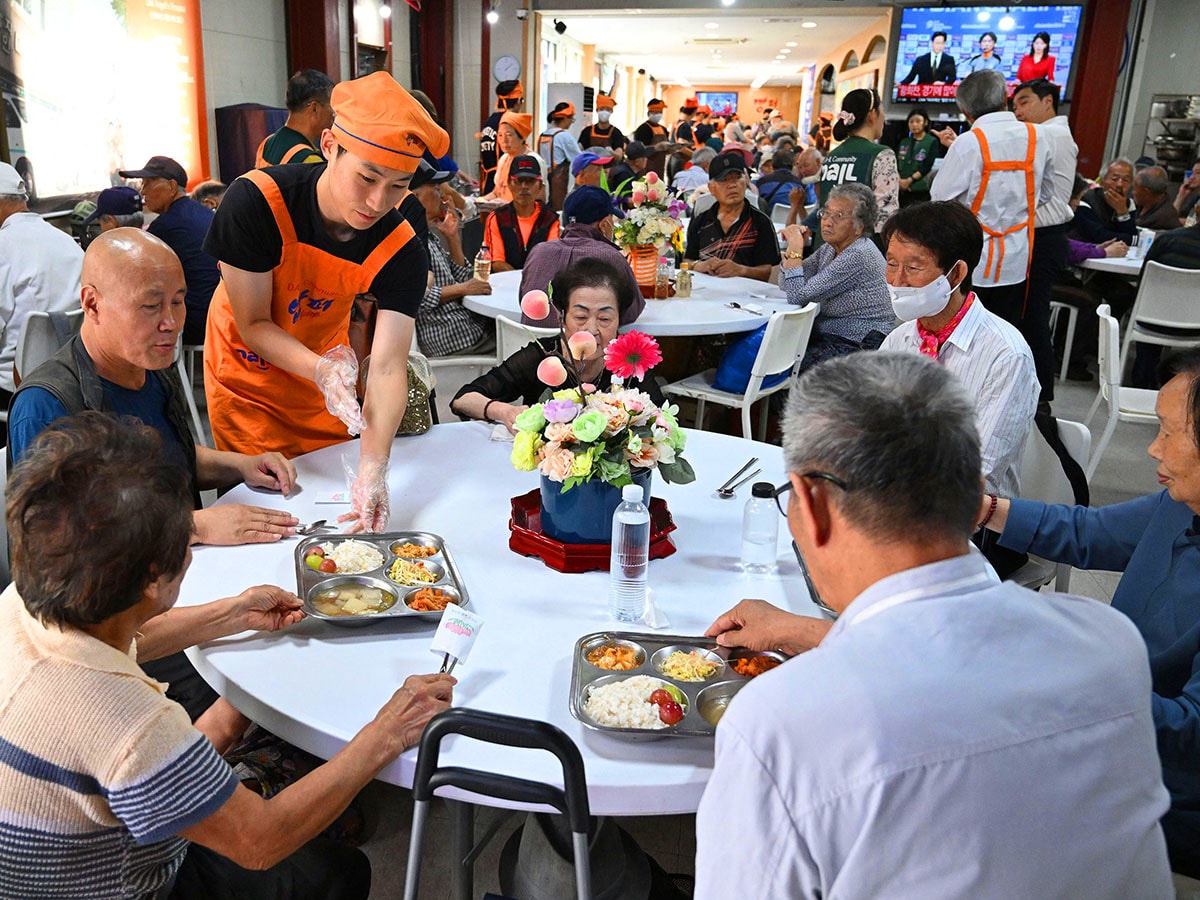
Seoul gentrification threatens free meal centre
Residents of the glitzy condos that now overlook the small, bustling Babfor centre claim that the free food service has devalued their properties by up to 200 million won ($145,000)
 Volunteers serving free hot meals at the "Babfor" service centre in Seoul.
Image: Jung Yeon-je / AFP©
Volunteers serving free hot meals at the "Babfor" service centre in Seoul.
Image: Jung Yeon-je / AFP©
Before the Zaha Hadid-designed plaza, before the luxury high rises, before the South Korean neighbourhood hosted fashion week, there was a pastor handing out rice to poor pensioners in Seoul's Dongdaemun district.
But as land values in the rapidly gentrifying area have soared, Choi Il-do has found himself increasingly at odds with his new neighbours, who claim his popular free meal service centre attracts too many people, leading to crime and hurting property prices.
A new district chief won office in 2022 on the back of a promise to relocate the "Babfor" centre—which means "scooping out rice"—and Choi now faces multiple legal cases, based on property law technicalities.
Residents of the glitzy condos that now overlook the small, bustling Babfor centre "claim our service has devalued their properties by up to 200 million won ($145,000)" per apartment, Choi told AFP.
Choi blames "unfounded rumours" that his clientele—overwhelmingly pensioners who are South Korea's poorest demographic, with a poverty rate of around 40 percent —commit crimes.

















